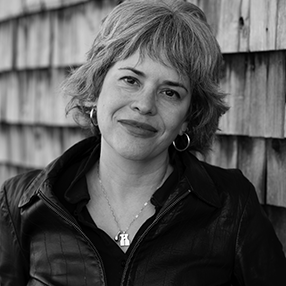Oracle
Dead girls don't go the dying route to get known.
You’ll find us anonymous still, splayed in Buicks,
carried swaying like calves, our dead hefts swung
from ankles, wrists, hooked by hands and handed
over to strangers slippery as blackout. Slammed
down, the mud on our dress is black as her dress,
worn out as a throw-rug beneath feet that stomp
out the most intricate weave. It ought not sadden
us, but sober us. Sylvia Plath killed herself. She ate
her sin. Her eye got stuck on a diamond stickpin.
You take Blake over breakfast, only to be bucked
out your skull by a cat-call crossing a parking lot.
Consuming her while reviling her, conditioned to
hate her for her appetite alone: her problem was
she thought too much? Needling an emblem’s ink
onto your wrist, the surest defense a rose to reason
against that bluest vein's insistent wish. Let’s all
us today finger-sweep our cheek-bones with two
blood-marks and ride that terrible train homeward
while looking back at our blackened eyes inside
tiny mirrors fixed inside our plastic compacts. We
could not have known where she began given how
we were, from the start, made to begin where she
ends. In this way, she's no way to make her amends.
Copyright © 2013 by Cate Marvin. Used with permission of the author. This poem appeared in Poem-a-Day on February 11, 2013. Browse the Poem-a-Day archive.
"Plath has been my poetic mainstay for the past two decades. 'Oracle' was composed after rereading The Bell Jar alongside accounts of the rape of a sixteen-year-old girl that occurred in Steubenville, Ohio, this past August 2012. It's a terrible pair of anxieties that dominate this poem: the suicide of an author I love deeply (that occurred fifty years ago) alongside the attempt to destroy a young woman (fifty years later). I wish to add that it's my opinion Sylvia Plath lived a hell of a lot more than she died."
—Cate Marvin

